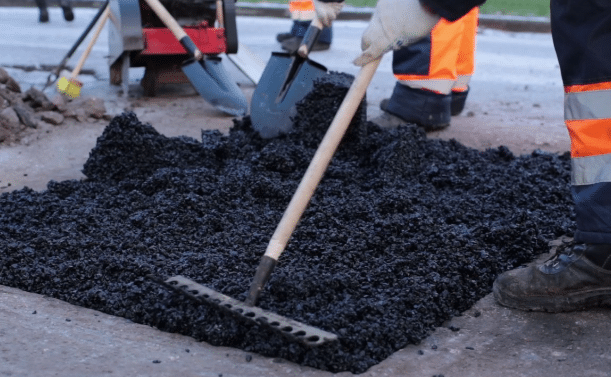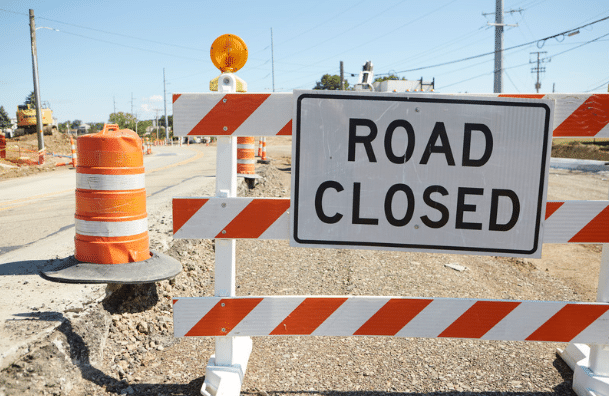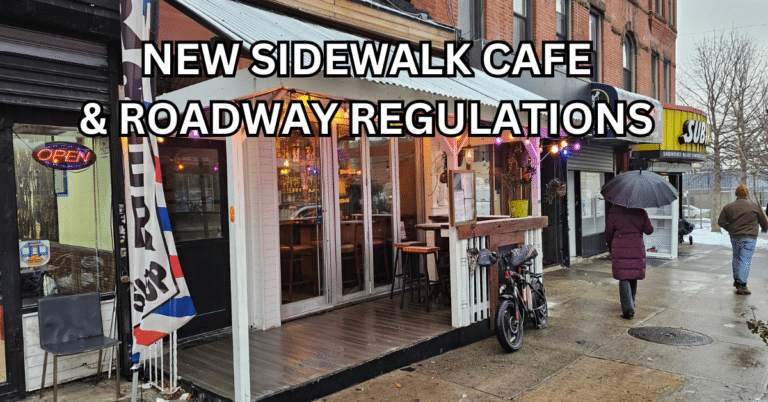Last Updated on August 5, 2025 by Jeffrey Calderon
DOT Revocable Consent Agreement: 2025 Guide

Are you planning to construct a permanent structure in the public right of way?
If you answered Yes, you will need a revocable consent agreement from The Department of Transportation.
Make your construction project compliant by obtaining a revocable consent agreement from DOT and avoid any future headaches.
This filing keeps your project compliant and protects the public’s access to their rights of way without violating any statutes.
We’ve compiled common questions and answers listed below, please let us know if we missed anything!
What is a Revocable Consent Agreement?
A revocable consent agreement is a legal document that grants permission to an individual or organization to use public property for private purposes, such as construction projects or installation of infrastructure.
This document permits the municipality to maintain its oversight of public spaces while also giving homeowners and contractors the ability to utilize these places for their projects.
In New York City, the DOT is responsible for issuing revocable consent agreements.
These agreements cover various types of installations on public property, including but not limited to:

- Bicycle Racks
- Fences and retaining walls
- Pedestrian bridges and tunnels
The primary purpose behind revocable consent agreements is ensuring that any alterations made on public property comply with local regulations, safety standards, and design guidelines.
As part of this process, applicants may be required to submit detailed plans outlining their proposed project’s scope, materials used, maintenance procedures, and insurance coverage requirements if applicable.
An important aspect of these agreements is their “revocability.” In other words, they can be terminated at any time by the DOT if it deems necessary due to changes in policy or circumstances surrounding the project.
For example, if there are concerns about pedestrian safety, the DOT may revoke the agreement.
The City of New York and an individual or organization may enter into a Revocable Consent Agreement to permit temporary occupancy of public space. Let’s examine who requires this accord to finish their endeavor.
What Improvements Need A Revocable Consent Agreement?

Any physical above or below-ground improvement you want to take on requires a revocable consent agreement with DOT for construction projects, installation of infrastructure like utilities and telecommunications equipment, or even outdoor seating areas for restaurants.
This can also include subterranean vaults that extend beyond the curb line.
The DOT is responsible for granting revocable consent agreements to guarantee that all individuals, organizations and contractors comply with city rules while preserving public areas’ safety and visual appeal.
Some common examples of situations where a revocable consent agreement may be required include:
Sidewalk Cafes
Restaurants looking to expand their seating area onto the sidewalk must obtain a revocable consent agreement from the DOT.
Bridges and Tunnels
Contractors working on bridge or tunnel projects that involve using public land need this type of agreement before commencing work.
Pedestrian Plazas
Businesses seeking permission to install amenities like benches or planters within pedestrian plazas should apply for a revocable consent agreement with the DOT.
Stoops
Homeowners looking to renovate their stoop or reconfigure their steps must also apply for a revocable consent agreement from the DOT.
What other City Agency Approvals do I need to file a Revocable Consent?

In addition to obtaining approval from the NYC DOT, some projects may also require review by other agencies such as the Public Design Commission which ensures that proposed designs align with city standards regarding aesthetics and functionality.

Another city agency could be Landmarks Preservation Commission if you building is landmarked. This would be a separate approval from Landmarks Division first, then you would present the approved plans to DOT as backup paperwork for the revocable consent agreement.

If your work encompasses a stoop, underground or above ground pipe, you will also be required to show Department of Buildings approved plans for the interior work you’re performing.
To determine if your project requires a revocable consent agreement, it’s recommended to consult with a professional who has experience navigating the permitting process in New York City.
An expert familiar with local regulations and procedures can assist in ensuring your project meets all requirements.
Revocable Consent Review
Find out If your Project Is Eligible

List of Improvements Eligible For Revocable Consent Agreement
How to Obtain a Revocable Consent Agreement
The process can be broken down into the following stages:
- Gather Required Information: Before applying, you must gather detailed information about your proposed project, including its location, dimensions, purpose, and any potential impacts on public property and the surrounding environment.
- Submit Application: Once you have collected all required information, submit an application for revocable consent with DOT. Be sure to include any supporting documents, such as site plans, color photographs, site surveys and outer agency approvals, if any.
- Application Review: After receiving your application, the DOT will review it for completeness and compliance with relevant rules and regulations.
- Acknowledgment Letter & Additional Requirements: If your application is deemed complete by the DOT, they will send you an acknowledgment letter outlining any additional requirements needed before approval can be granted. If necessary, this may involve coordination with other agencies like the Public Design Commission, Department of Buildings, or Landmarks. You will also have to provide proof of insurance coverage.
- Public Hearing & Approval Process: In some cases – particularly when projects are large-scale or controversial – a public hearing may be held to allow community members to voice their opinions on your proposal. Following this hearing (if applicable), final approval decisions will be made by either the DOT Commissioner or the Public Design Commission.
The procedure for acquiring a revocable consent agreement can be protracted, taking multiple months from filing to final endorsement.
To ensure your project stays on track and meets all necessary requirements, consider working with an experienced permit expediter who can help guide you through each step of the application process.
In addition to following these steps, it’s essential to stay informed about any changes in DOT regulations or requirements related to revocable consent agreements.
To obtain a revocable consent agreement from the NYC DOT, you must gather detailed information about your proposed project and submit an application online or by mail. The DOT will review your application for compliance with regulations and may require additional permits or insurance coverage before granting approval. It’s important to stay informed about any changes in regulations and consider working with an experienced permit expediter to navigate the process smoothly.
What Are the Terms of a Revocable Consent Agreement?
These terms vary depending on the nature of the project, but generally include requirements related to insurance coverage, indemnification, and escrow deposits.
Insurance Coverage
The NYC Department of Transportation (DOT) typically requires applicants to obtain comprehensive general liability insurance with minimum limits set by the agency.
This ensures that any potential damages or injuries resulting from construction or installation activities are covered financially.
Additionally, proof of workers’ compensation and disability benefits insurance may also be required if employees will be working on the project.
Indemnification
An important factor of a revocable consent contract is that the applicant must provide indemnity, which implies they are to defend and protect NYC DOT and other city agencies from any legal claims, proceedings or losses caused by their usage of public land.
In essence, this clause transfers responsibility for any legal issues stemming from your project onto you as an individual or organization.
Escrow Deposits
Escrow deposits are required as part of a revocable consent agreement.
This serves as financial security for ensuring compliance with all applicable rules and regulations during construction or installation work on public property.
The amount deposited into escrow varies based on factors such as:
- The scope and complexity of your project
- Potential risks associated with your proposed use
- The estimated cost for the city to remove or restore the public property if necessary
Once your project is completed and all terms of the agreement have been met, you may be eligible for a refund of your escrow deposit.
Understanding and adhering to these key terms within a revocable consent agreement is crucial for ensuring a smooth process when using public property for private purposes.
Make sure you carefully review each term before signing an agreement and consult with legal counsel if needed to ensure compliance throughout your project’s duration.
The terms of a Revocable Consent Agreement are complex and require careful consideration.
Breaching the contract can result in severe repercussions, so it is essential to comprehend what will transpire if one does not adhere to its stipulations.
A revocable consent agreement is a legal document that outlines the terms and conditions for using public property for private purposes. It typically includes requirements related to insurance coverage, indemnification, and escrow deposits. Understanding and adhering to these key terms is crucial for ensuring compliance throughout your project’s duration.
What Happens if I Violate My Revocable Consent Agreement?

If you violate any terms of your revocable consent agreement, it’s essential to understand the potential consequences and take steps to rectify the situation as soon as possible.
Non-compliance with a revocable consent agreement can result in fines, penalties, or even termination of the agreement by the NYC Department of Transportation (DOT) or other involved agencies.
Potential Consequences for Violating a Revocable Consent Agreement
- Fines: The DOT may impose monetary fines on individuals or organizations that fail to comply with their revocable consent agreements. Penalties for non-adherence may range from monetary sanctions to additional regulatory requirements, corrective measures, or prohibitions on future applications.
- Penalties: In addition to fines, non-compliant parties may face additional penalties such as increased insurance requirements, mandatory corrective actions, or restrictions on future permit applications.
- Termination: In severe cases where violations persist despite warnings and penalties, the DOT has authority to terminate a revocable consent agreement altogether. This action would require removal of any structures or installations associated with the revoked permission at your expense.
Taking Action After Receiving Notice of Violation
If you receive notice from DOT regarding a violation related to your revocable consent agreement, it is crucial that you act promptly in addressing this issue. Here are some recommended steps:
- Contact an experienced attorney who specializes in handling matters involving permits and public property usage for guidance throughout this process.
- Consult with professionals, such as architects or engineers, to assess the violation and develop a plan for correcting it.
- Communicate with DOT officials to demonstrate your commitment to resolving the issue and request additional time if needed.
- Submit any required documentation, including proof of corrective actions taken, to the DOT for review and approval.
It is critical to comprehend all the conditions of your agreement and act promptly if you are informed about any non-compliance.
If you violate the terms of your revocable consent agreement, it can result in fines, penalties or termination by the NYC DOT. The consequences for violating a revocable consent agreement include fines, increased insurance requirements and mandatory corrective actions. If you receive notice of violation related to your agreement, act promptly by contacting an experienced attorney and communicating with DOT officials to demonstrate your commitment to resolving the issue.
Final Words On Revocable Consent Agreements
A revocable consent agreement is a legal document that permits a homeowner to encroach on city right of way with their desired construction improvement.
A revocable consent agreement specifies the terms and conditions, such as any limitations on access or liability issues, for temporary access to a homeowner’s property.
Homeowners who need specific work done on their property that requires them to obtain a revocable consent agreement should start the process quickly as it can take several months and multiple reviews to gain approval.
We’ve gone through this process numerous times, leverage our experience to make your construction go a little smoother.





